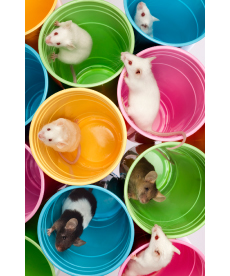The cancer prevention diet
 |
Only in the past several years have we learned that an overabundance of dietary phosphate in animals and people can prove life-threatening. A recent Emory study suggests that high intakes of phosphate in the diet encourage tumor development in animals in the presence of a carcinogen, whereas restriction of phosphate intake may help prevent cancer.
The researchers applied a carcinogen found in cigarette smoke to the skin of mice, followed by another chemical that stimulates cell growth. They then fed the mice a high-phosphate diet. The result: the mice on the phosphate-intensive diet experienced a 50% increase in skin papilloma, the initial stage of skin cancer, compared with mice on a low-phosphate diet.
Emory endocrinologist George Beck Jr. calculates that the human dietary equivalent of a mouse’s high-phosphate diet used in the study is 1,800 milligrams per day, an intake level that many adults in the United States match or exceed. “It’s quite possible that a low-phosphate diet may help prevent cancer,” says Beck. —Robin Tricoles


